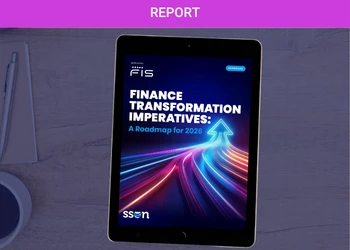Regulatory compliance is essential to running a successful business. Ways to mitigate compliance risks include labor audits that highlight workforce-related liabilities or managing data security effectively to ensure privacy regulations are met. However, a key struggle many multinational global business services (GBS) face is managing tax risks.
Fortunately, Henrique Tsukamoto provided the SSON community with insights on navigating tax and compliance risks as a GBS professional. Henrique, an experienced coordinator at Drummond Advisors since 2015, has expertise in various areas such as International Tax Planning, Business Valuation, and Accounting.
In his webinar, “Globalization Without the Risk: How Outsourcing Can Help You Overcome Tax And Compliance Risk In Your GBS”, Henrique explained State Nexus, how to handle global tax compliances and the benefits of outsourcing.
Henrique set the foundation of the webinar by outlining the differences between U.S. legal entity types, such as corporations and limited liability companies (LLCs). Then, the session continued with a comprehensive guide to different international tax forms and obligations such as Form 5471, Form 5472, FATCA and FBAR.
To finish the webinar, an engaging Q&A allowed Henrique to show his expertise on tax management.
Main Tax and Compliance Risks for GBS
Henrique highlighted a common yet unexpected issue many Drummond clients face: transfer pricing. Transfer pricing involves different divisions of an organization “transacting with one another.” If these divisions are located in different countries, Henrique provides the examples of U.S. and Germany, any transactions between the two need to occur at market rates or “arm’s length” prices. When exchanging goods or services between these divisions, using market prices allows the parent company to reduce tax costs and ensures transactions reflect the true economic value.
For Henrique, another crucial element of operating a GBS is local tax obligations. For example, Henrique discusses sales tax in the U.S. The complexity of sales tax arises as it differs by state, county and even city. Moreover, failing to comply with these obligations will lead to penalties.
Global Compliance Risks
The discussion swiftly turned to managing global compliance risks, and Henrique outlined the benefits of having local consultants. Henrique explained that “you will never find [a] single service provider that [understands] all the laws and regulation in [your] countries.” Utilizing local consultants, Certified Public Accountants (CPAs) and lawyers will help ensure that businesses are compliant with changing tax regulations. New laws and policies surrounding tax are continuously being developed, such as the U.S. 2022 Inflation Reduction Act, and a tax consultant can allow business decisions to reflect the changing landscapes.
To continue, Henrique emphasized that “organization and planning are essential for a firm that is trying to go global. It must have the correct infrastructure [and] internal processes in order to avoid losing control of the operation…” Organizations on their GBS journey can face rapid growth in a small time period, leaving some unprepared. Establishing a strong internal foundation will allow businesses to have the agility to scale effectively and combat any “external shocks” such as tax obligations.
Internal regulations, also have the added benefit of supporting the company’s culture within the workplace. Ensuring policies surrounding aspects such as working hours, absences and benefits allows organizations to benefit from a clear structure, making talent management easier.
Outsourcing
Outsourcing can be beneficial for GBS managing tax compliance risks. For example, Henrique recommends outsourcing to the U.S. when working with sales tax. For Henrique, “it is a little bit of an investment, but I would say it is worth it just because of the level of detail that you need…” However, the same principle can be applied to income tax but if “it is not something that [organizations] know [they] can easily outsource…” it should not be a priority.
In summary, Henriques revealed to attendees how to efficiently manage tax compliance whilst operating in multiple countries. Understanding local tax regulations, utilizing local consultants and even adopting outsourcing supports organizations to run their GBS smoothly.
Henrique’s session is available on demand above. For more insights, SSON are delighted to once again be hosting the Shared Services & Outsourcing Week in Orlando, March 2024. The event will cover all things GBS, from AI to financial strategies, with insights from leading industry experts.














